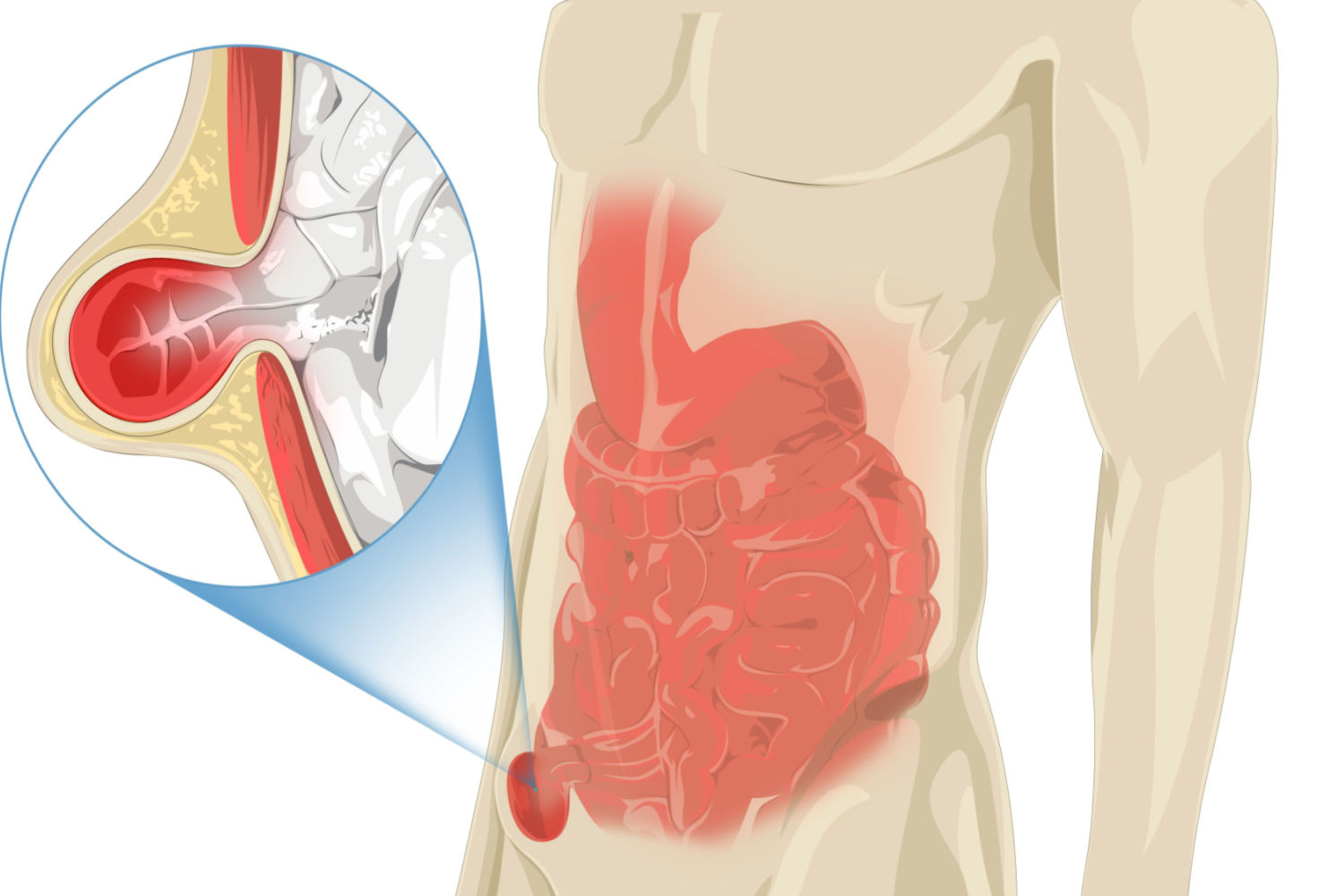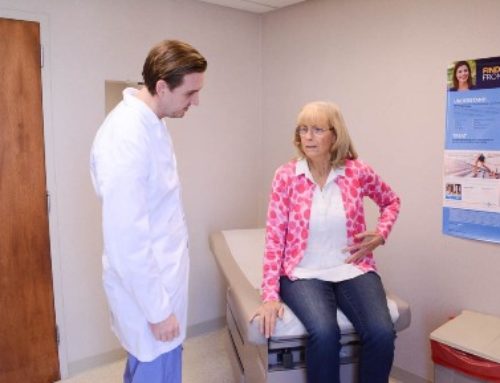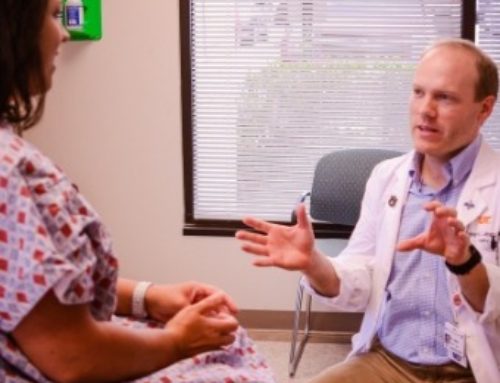A hernia can happen to anyone at any point in their life – and it won’t heal without effective treatment.
Reports estimate that more than 20 million hernias are treated worldwide each year. Left untreated, a hernia can sometimes cause life-threatening complications such as blocked blood flow and strangulation of internal organs. Here are some details you need to know regarding this common condition – including when you should have a consultation for surgery.
How to Tell If You Have a Hernia
What is a Hernia?
A hernia is a hole or defect in the abdominal wall. It can happen in any part of the abdomen and can vary in size. The intestine slides through the muscle and protrudes through, making a bulge under the skin.
Hernia Symptoms
The symptoms of hernias can vary greatly. Some patients have no symptoms at all except for a noticeable bulge on their abdomen. This bulge can be big or small and grow in various spots all over the body.
Common Hernia Symptoms
- Burning pains
- Sharp pain
- Abdominal bloating
- Nausea
- Vomiting
- Constipation
- Heartburn
- Trouble swallowing
- Shooting pains
- Pain and swelling in the groin
- Aching around the hernia bulge
Please note that constipation can be a sign of an intestinal obstruction, which is a medical emergency.
I Think I Have a Hernia. What’s the Next Step?
How Do You Know If You Need Surgery For a Hernia?
Following an examination, your doctor can recommend the best course of action regarding your hernia. Keep in mind that most hernias do require surgery eventually.
Whether or not hernia surgery is needed urgently, however, depends on a variety of factors such as these:
- Is the hernia causing pain or any other symptoms?
- Has the hernia developed any complications, such as strangulation or incarceration?
- Do you have any underlying conditions that potentially make surgery dangerous?
Ultimately, your doctor should be able to provide you with a recommendation based on your condition.
A quick note to reassure anxious patients: We know that the idea of surgery can seem daunting, but it really isn’t as scary as it seems. Start by consulting with a surgeon – they can provide you with all the information you need to make the best decision for your health. A specialist can walk you through your options and offer some recommendations as to what to do next.
Here at University Surgical Associates, we offer a variety of cutting-edge surgical options, including procedures that are minimally invasive. Most patients are able to return to daily activities within just 1-2 weeks.
Can You Live With A Hernia Without Surgery?
Although most hernias are not immediately life-threatening, they can develop complications over time. Due to this, it’s best to consult with a doctor as soon as possible if you notice signs of a hernia on your body. Depending on the state of the hernia and your symptoms, your doctor may recommend anything from immediate surgery to simply monitoring symptoms.
What Happens If I Don’t Have Hernia Surgery?
Hernias do not go away on their own. This means the hernia will remain until you choose to proceed with hernia surgery. In some cases, a hernia may cause no physical harm, but this is not guaranteed. Although rare in occurrence, hernias can lead to a serious condition called strangulation.
Why Do I Need Treatment For a Hernia If It Isn’t Causing Pain?
It is true that some hernias don’t require immediate treatment, especially if they’re not causing any pain. In a case like this, your doctor may recommend waiting on surgery and simply keeping an eye on the hernia in the meantime. Some hernias, however, can lead to life-threatening complications and may require immediate surgery.
Here are two of the most common types of hernia complications:
Incarcerated Hernia
An incarcerated hernia develops when tissue is trapped in the sac of a hernia. This complication is very dangerous since it can lead to strangulation of tissue. Incarcerated hernias need surgical intervention as soon as possible to prevent further complications.
Strangulation
A strangulated hernia occurs when blood can no longer reach the herniated tissue. In this case, the tissue is in danger of dying. Strangulation is considered a very dangerous condition, and emergency surgery is required as soon as possible.
How Important Is It to Have an Incisional Hernia Repaired?
An incisional hernia is one that occurs at the site of a healing surgical incision. Most of the time, this type of hernia poses little immediate danger to the patient. Having said that, the hernia itself will not dissipate on its own and will probably require surgical intervention eventually. However, if the hernia continues growing, causes pain, or develops complications, it will need surgery sooner.
Are Hernia Meshes Safe?
Who Can Diagnose an Abdominal Hernia?

Most people can identify a hernia fairly quickly – although some are less obvious in appearance. However, a thorough physical exam is required to diagnose the issue officially. A simple physical examination is often sufficient to diagnose a hernia. In some cases, your doctor may order an imaging test in order to get a better visual of the bulge.
Often, a primary care physician can diagnose an abdominal hernia. They may refer you out for the surgical consultation itself, however.
Although you can often feel the hernia yourself, it is still best to get it verified by a medical professional. This way, you can make sure that you receive treatment in a timely manner. Additionally, a doctor will be generally better equipped to monitor your symptoms for signs of hernia complications.
In Chattanooga, TN, the Hernia Center at University Surgical Associates offers hernia diagnostic services, surgical consultations, and surgical hernia repair procedures.
What Doctor Or Department In A Hospital Does Hernia Surgery?
General surgeons and hernia surgeons can perform hernia surgeries. Here at University Surgical Associates, our Hernia Center offers top-of-the-line medical care for hernia patients. Our practice provides a variety of minimally invasive hernia surgeries, including robotic and laparoscopic hernia repair.
What Causes Hernias?
Hernias are generally caused by heavy straining and muscle weakness. People who are overweight are at greater risk of developing a hernia because their abdominal pressure is already high. Lifting heavy objects – whether during exercise or daily exertion, can also increase your risk. This includes activities such as carrying furniture, moving heavy boxes, or other sudden movements.
Other medical issues or activities that may lead to a hernia include:
- Straining on the toilet, likely due to constipation.
- An enlarged prostate.
- Physical exertion.
- Smoking.
- A persistent cough.
- Sneezing.
Some hernias are also there from birth and are not caused by any activity in particular.
Am I a Good Candidate?
Different Types of Hernias

A hernia can generally be classified by where it occurs in the body.
Inguinal Hernias
Inguinal hernias are the most common type of hernia. Inguinal hernias occur when part of the intestines or fatty tissue pokes through a weak point of the fascia and into the inguinal canal. Externally it may be noticed as a bulge above the inner thigh or groin. These types of hernias are most often found in males.
As long as the hernia isn’t growing or causing much pain, then inguinal hernias aren’t that dangerous. However, if the hernia does start to grow in size, it could be a sign of life threatening complications.
Inguinal hernias will not go away on their own and can only be fixed through inguinal hernia repair surgery.
Femoral Hernias
Femoral hernias occur when part of the intestines enters the canal that carries the femoral artery into the upper thigh. This type of hernia is most common in women. Women who are pregnant or obese are especially at risk for developing femoral hernias. Femoral hernias usually appear in the lower groin or at the top of the inner thigh.
On their own, femoral hernias are generally not life threatening. However, if femoral hernias become strangulated, then they will be life threatening. The only way to fix a strangulated femoral hernia is through emergency hernia repair surgery.
Umbilical Hernias
This type of hernia occurs when part of the intestines or fatty tissue pokes through the fascia near the belly button, or navel. These hernias are most commonly found in newborns. Fortunately, about 90 percent of cases show the hernia closing naturally before the child turns 5 years old. Externally, an umbilical hernia presents as a noticeable bulge around the belly button.
If no complications occur, then umbilical hernias are not a dangerous condition. However, like other types of hernias, if an umbilical hernia becomes strangulated, trapped, or incarcerated, then it will become life threatening.
Additionally, this type of hernia is more likely to grow in size if left untreated. And the only way to fix an umbilical hernia is through surgery.
Hiatal Hernias
Unlike other types of hernias, hiatal ones are usually not visible to the naked eye. That is because these hernias occur when part of the stomach protrudes up into the chest and through the diaphragm. So detection and diagnosis require help from a medical professional.
Hiatal hernias are typically discovered through x-rays, CT scans, upper GI endoscopies, or esophageal manometry. People who smoke, are overweight, or are age 50 or older are more likely to develop a hiatus hernia. Hiatal hernias also tend to cause more symptoms of heartburn and acid reflux.
Thankfully, hiatal hernias are not usually life threatening. However, they do tend to cause long-term acid reflux symptoms, including damage and irritation to the esophagus. It should also be noted that the reflux damage caused by a hiatus hernia can increase the risk of esophageal cancer.
Hiatal hernia surgery usually involves repositioning the upper stomach, strengthening the diaphragm, and even repairing the esophagus. Depending on your goals and overall health, surgical treatments for this type of hernia may be combined with weight loss surgery.
Parastomal Hernias
Parastomal hernias develop when the intestines press up and out of a small hole created for a colostomy or ileostomy device. Typically, a parastomal hernia will present as a bulge in the mid-abdomen. Parastomal hernias are the most common side effect of colostomy or ileostomy surgery, but thankfully they are not usually dangerous. But complications can cause more serious problems.
Surgery to repair this type of hernia usually involves closing the current hernia and then creating a new stoma if one is still needed.
Ventral Hernias
Ventral hernias occur anywhere along the abdominal wall. Like other hernias, they occur when tissues inside of the abdominal wall are pressed through a weak spot. Ventral hernias are often identified as incisional hernias because most ventral hernias develop around weak spots from previous abdominal surgeries.
Do all ventral hernias need surgery?
Small ventral hernias are typically not dangerous. But the longer they are left untreated, the greater the risk of complications like organ strangulation and gangrene. These hernias may also begin causing pain and other uncomfortable symptoms the longer you wait to schedule a ventral hernia repair.
Incisional Hernias
Incisional hernias develop when internal tissues press against a weak spot or a not fully healed incision from abdominal surgery. These hernias can occur anywhere in the abdomen, but only become dangerous in very rare cases. Potential complications include bowel obstructions and organ strangulation.
In order to fix an incisional hernia, a surgeon will need to move the bulging tissue back to its proper place, and then strengthen the tissues and fascia that hold the internal organs in place.
Request an Appointment With the Hernia Surgeons at University Surgical Associates
If you’ve noticed a bulge in your abdomen, groin pain, or felt uncomfortable in your pubic region while coughing, bending, or lifting objects, you may have a hernia. Schedule a consultation with USA’s Hernia Center by filling out the form below or by calling (423) 267-0466.






It did catch my attention when you said that surgery is needed to treat a hernia since it does not go away on its own. This is something that I will share with my sister so I can convince her to undergo hernia repair surgery within the month. She has been dealing with burning pains, nausea, and vomiting due to it, so it will make sense for her to seek the right treatment.
Oh, dear. One of my neighbors has been experiencing abnormal pain in his abdomen since yesterday. Reading this article makes me realize, then, that esophageal manometry is one of the common methods of identifying hiatal hernias. Never mind, I’ll ask him to meet a specialist in an instant so he can be properly treated.
My attention was drawn when you mentioned that since a hernia does not go away on its own, surgery is required to treat it. I’m going to tell my sister about this so I can persuade her to get hernia surgery within the month. It makes sense for her to seek the appropriate therapy because she has been experiencing searing sensations, nauseousness, and vomiting as a result.
Interesting insights on when hernia surgery might be necessary.